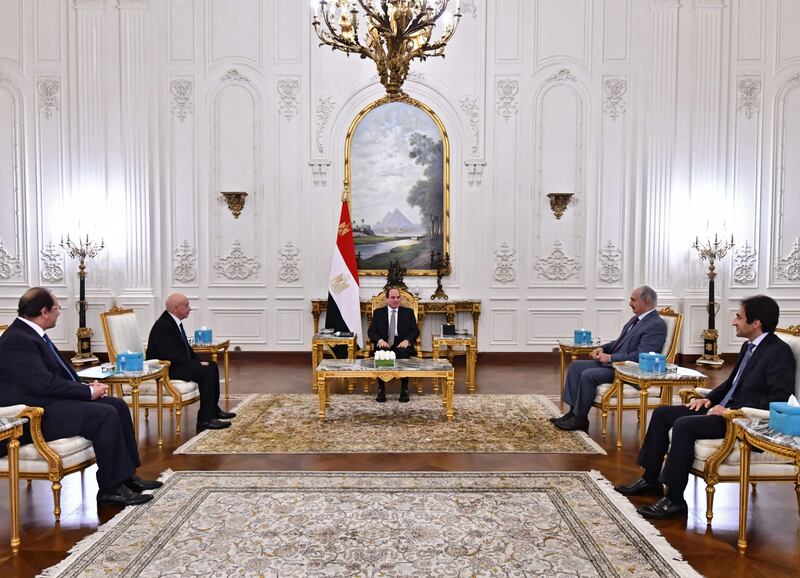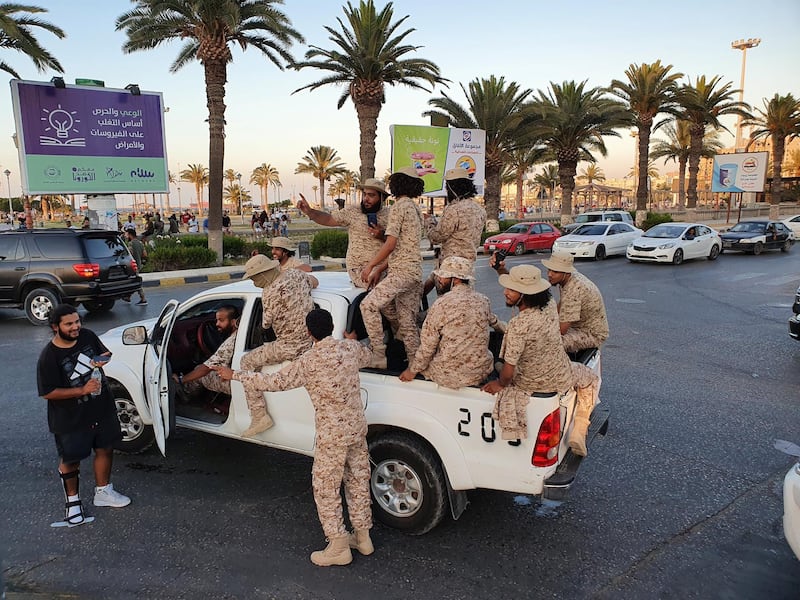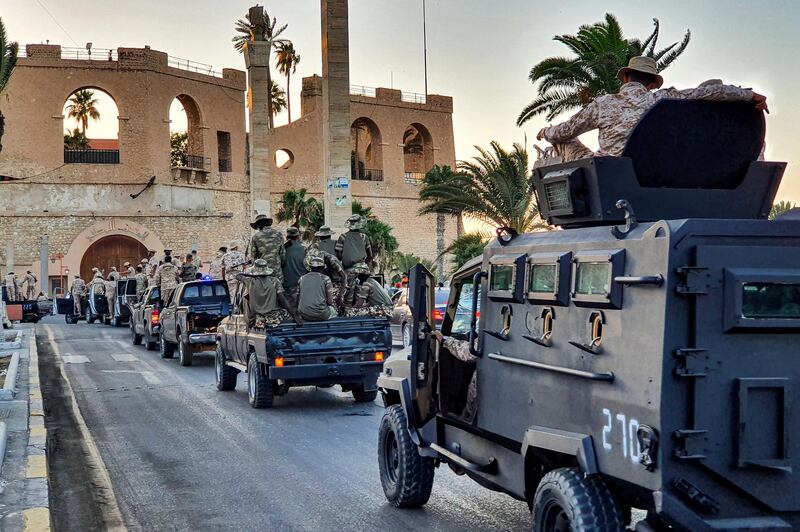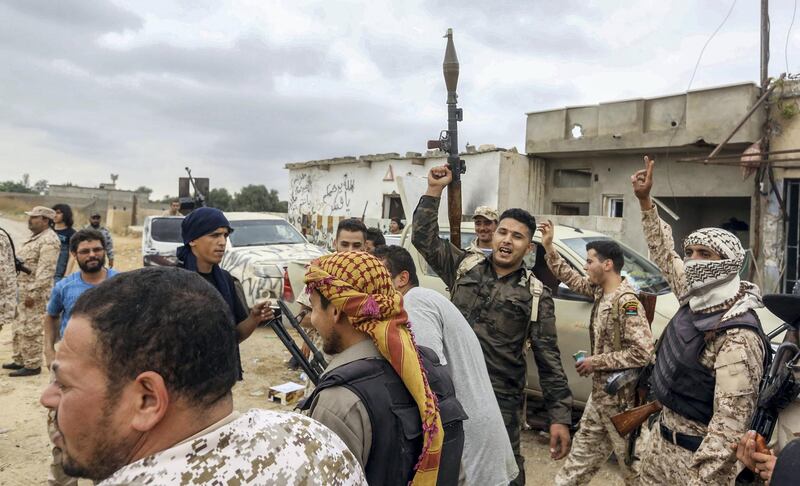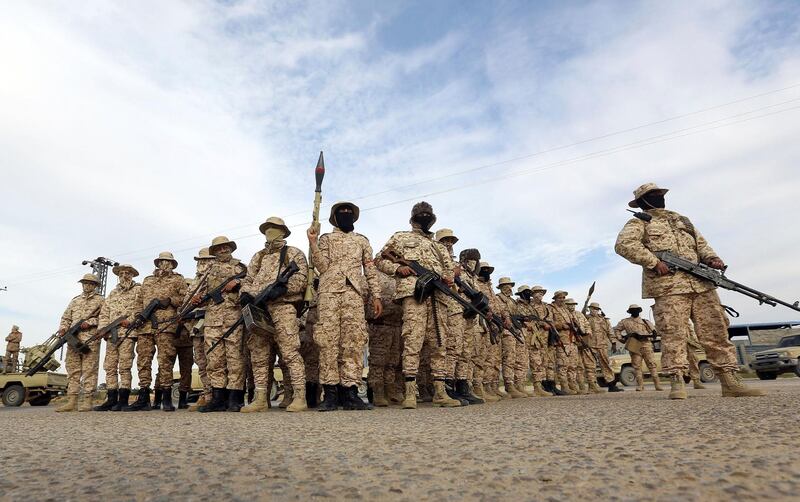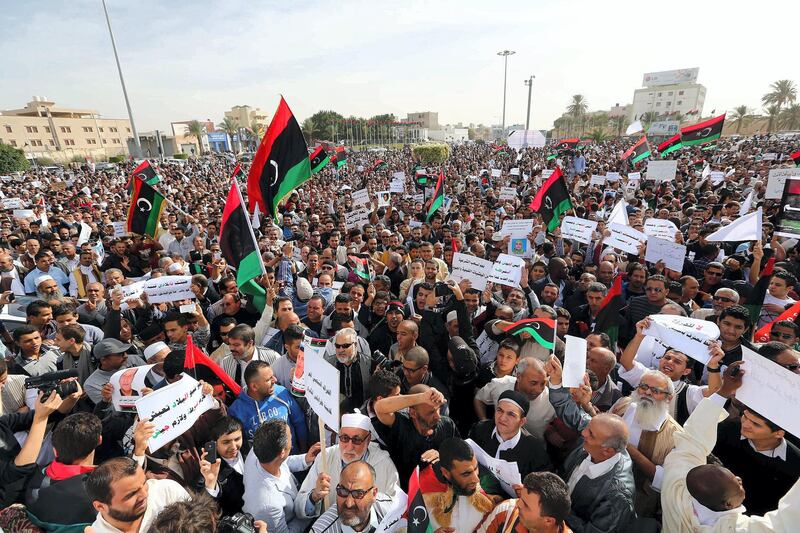President Abdel Fattah El Sisi received on Tuesday speaker Aguila Saleh and Khalifa Haftar, commander of the Libyan Arab Armed Forces, in Cairo, the Egyptian leader’s office said.
Mr El Sisi pushed for the holding of elections as scheduled in December and said his government would continue its efforts “with all Libyan brothers … to hold the significant presidential and parliamentary vote by the end of this year”.
He also reiterated calls for foreign forces and mercenaries to be pulled out of the oil-rich country.
The UN has estimated there have been 20,000 foreign forces and mercenaries, mostly Syrian, Turkish, Russian and Sudanese, in the North African nation. The presence of foreign fighters and mercenaries is a major hurdle to holding the planned vote.
Mr Saleh and Gen Hafter, whose forces run most of Libya’s eastern and southern regions and oil facilities, are close allies to Egypt.
In recent months, Mr El Sisi’s government has also reached out to officials in western Libya.
UN-sponsored peace talks brought about a ceasefire last October and installed an interim government that is expected to lead the country into December elections.
The ceasefire deal also required the withdrawal of foreign fighters and mercenaries within three months, a deadline that was never met.
Libyan lawmakers have failed to finalise a legal framework for voting to take place, throwing the election schedule into doubt.
With mounting international pressure, the parliament earlier this month adopted a controversial presidential electoral law and said it is in the process of finalising it for parliamentary elections, according to the UN's envoy to Libya.
However, the High Council of State, an executive institution that among other duties proposes electoral laws, complained the law was adopted without consulting its members, which could derail the road map.
US special envoy to Libya Richard Norland urged the country’s leaders to compromise to meet the people’s expectations and hold elections at the end of the year.
Libya has been wracked by chaos since a Nato-backed uprising toppled longtime dictator Muammar Qaddafi in 2011 and split the oil-rich country between rival governments, each backed by armed groups and foreign governments.
